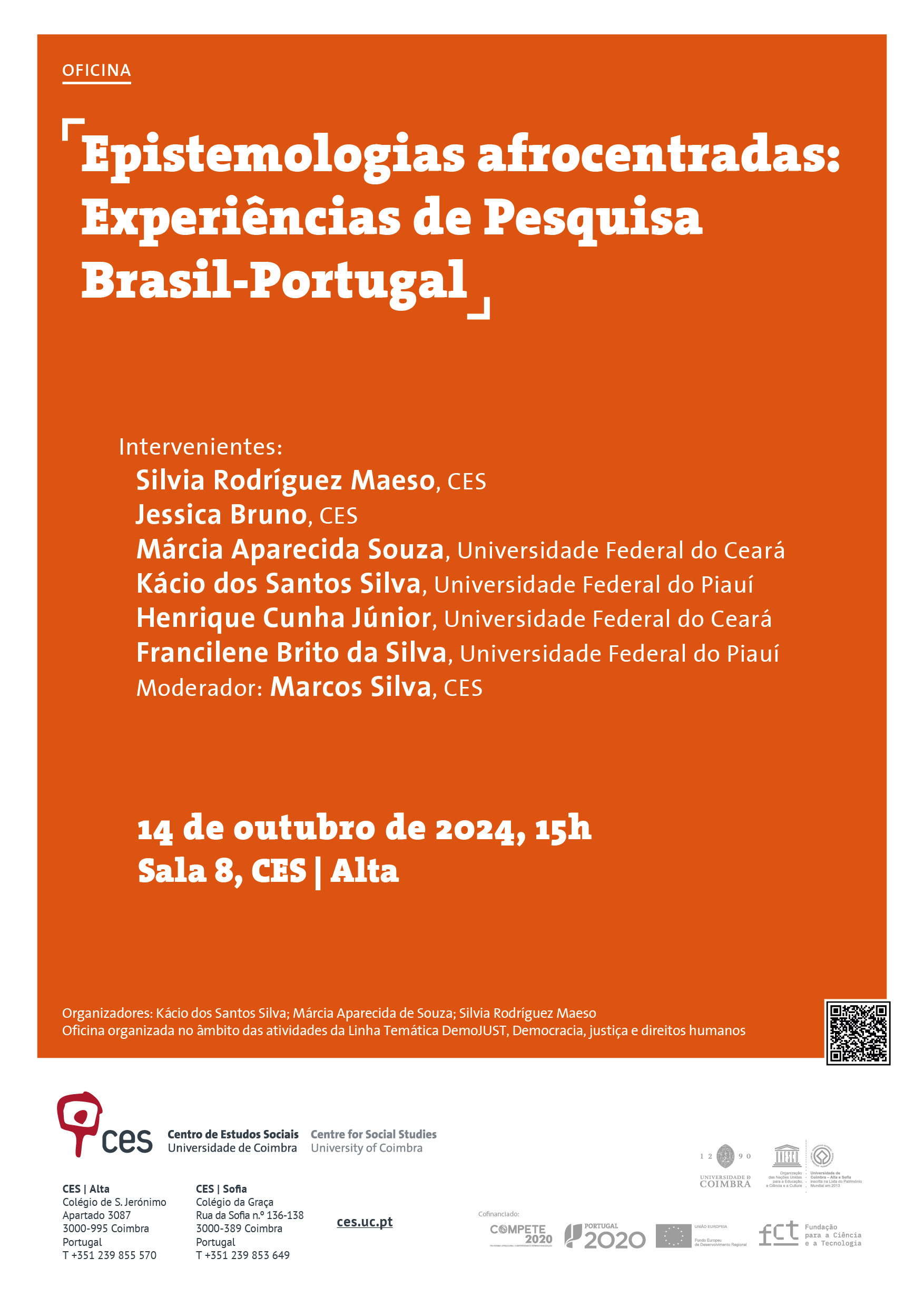Workshop
Afrocentred Epistemologies: Brazil-Portugal Research Experiences
October 14, 2024, 15h00
Seminar Room (3rd Floor), CES | Sofia
This workshop brings together doctoral research carried out on the basis of Afrocentred epistemologies in educational contexts in Brazil and Portugal. It seeks to promote discussions about black bodies and their intersectionalities based on the (re)construction of methodologies that not only denounce racism but also promote critical dialogues for the emancipation and valorisation of black bodies and intellectualities.
The workshop will feature the presentation of three doctoral research projects underway as part of postgraduate programmes at three universities: the University of Coimbra, the Federal University of Ceará, and the Federal University of Piauí.
‘The Wretched of the Earth’: The echoes of racism in the journeys and experiences of students of African descent at Portuguese universities - Jessica Bruno
With an epistemological horizon that understands racism as a continuity of colonial logics, a structural factor of ontological exclusion and epistemic negation, this research analyses the paths and experiences of students of African descent in higher education in Portugal, in their relationship with racism. It starts by discussing the socio-institutional evidence of barriers to these students’ access to universities, in dialogue with in-depth research into the concrete effects of racism on their academic journeys, considering its impact and (re)production in the academic world. It also dialogues with the strategies to combat racism promoted by anti-racist social movements in Portugal.
Life, academic and professional trajectories of pioneering black teachers from Natividade (Rio de Janeiro) and their incursions into black neighbourhoods - Márcia Aparecida de Souza
This research project follows the path of autobiography, travelling through the history of the education of the black population in Brazil. It addresses the issue of black socio-territorial segregation and the formation of Brazil’s black neighbourhoods. It is based on the methodology of Afro-descendancy and dialogues with literature based on black thinkers who deal with the black population. Moreover, because the evidence materialises in the territorialised memories of the black neighbourhood researched, in the city of Natividade-RJ, it presents the history, culture and social values of that locality as an instrument for teaching African history and culture and systematising the history of the pioneering black teachers of the aforementioned municipality, who had hitherto been made invisible by local anti-black racism.
Restituting the Mirrors: Dance as a decolonial educational practice - Kácio dos Santos Silva
Thinking about Afro-Atlantic corporealities and reconstructing discursive practises of existence and subjectivity for Brazilian Afro-descendant bodies are directions for this research, which uses dance as a methodology for creating and reworking narratives that were once subalternised. The work raises the hypothesis that mirrors are technologies of seduction; instead of perceiving the image of the self, one sees the unseen.
Thinking about Afro-Atlantic corporealities and reconstructing discursive practises of existence and subjectivity for Brazilian Afro-descendant bodies are directions for this research, which uses dance as a methodology for creating and re-elaborating narratives that were once subalternised. The work raises the hypothesis that mirrors are technologies of seduction; instead of seeing the image of the self, one sees the desire for the white-narcissistic world forged in the colonial wound opened in the colonised countries. These are clues for proposing decolonisations, coexistence and ameliorations to withstand this capitalist-chameleonic movement that manifests itself in different aspects: aesthetic, political, spiritual, and intellectual or other forms of performing ancestry.
Workshop organised as part of the activities of the research group DemoJUST - Democracy, justice and human rights
Organisers: Kácio dos Santos Silva; Márcia Aparecida de Souza; Silvia Rodríguez Maeso


